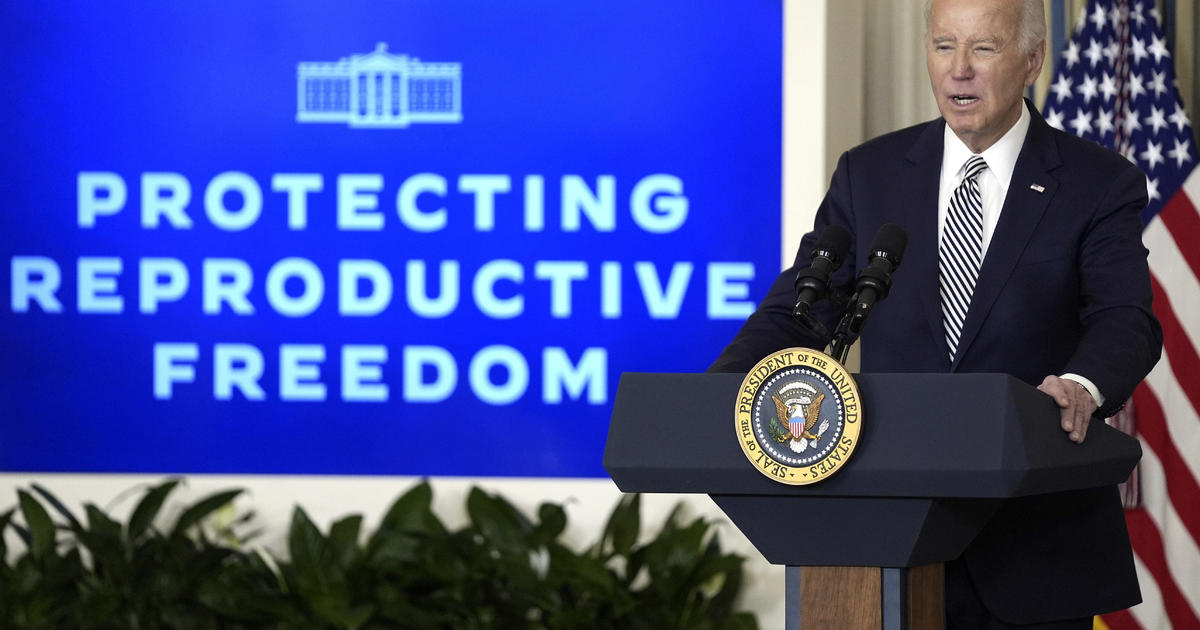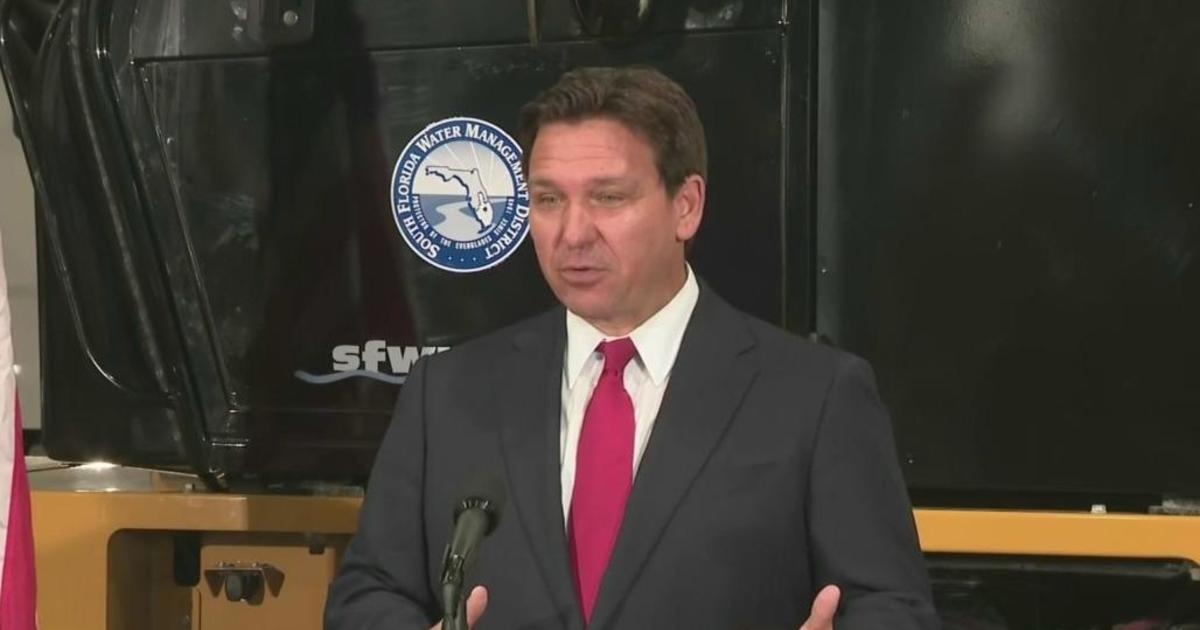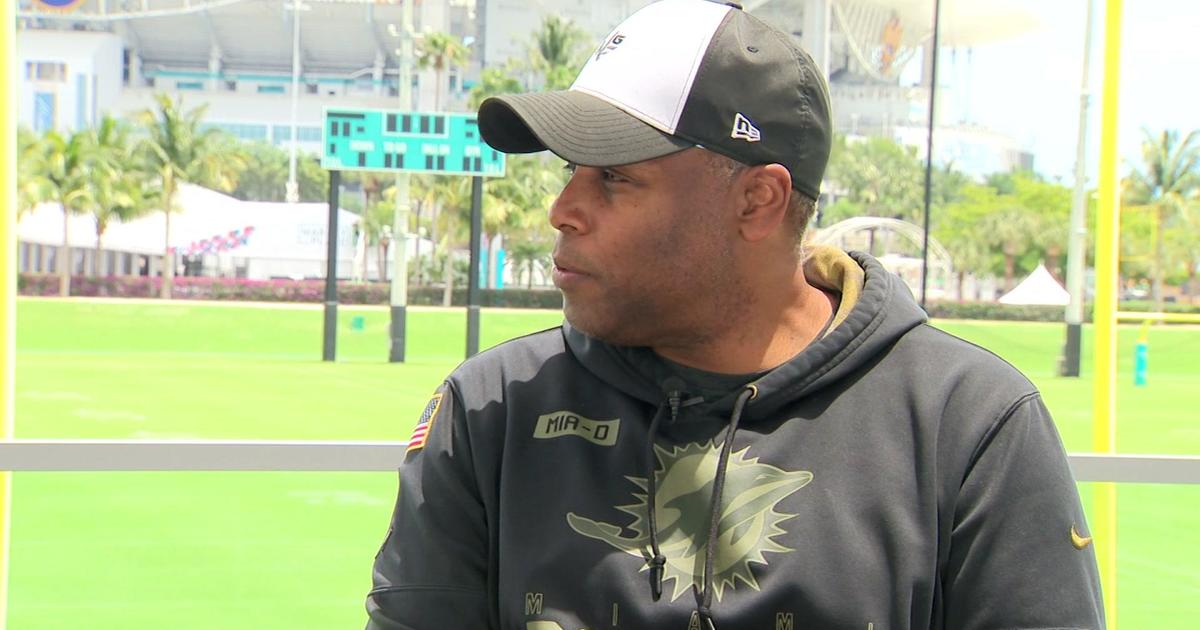Not Getting Enough Attention, Amendment 3 Could Have A Major Impact On Florida's Future Elections
MIAMI (CBSMiami) - One of the most important issues on the ballot this year is a measure that has not received a lot of attention but could have a major impact on our elections going forward. We are talking about Amendment 3.
Dubbed "all voters vote," Amendment 3 would open up the state's primary system.
CBS4's Jim DeFede, explains:
"Right now, only registered Democrats can vote in Democratic primaries and only Republicans can vote in Republican primaries.
As a result, at least three and a half million voters who have no party affiliation are left out of the process. Amendment 3 would change that.
Amendment 3 would allow all registered voters to vote in primaries for State Legislators, Governor and Cabinet.
And the two highest vote-getters – regardless of what party they may be in - would advance to the general election.
RELATED: CBSMIAMI VOTERS GUIDE
Amendment 3 is opposed by the Republican party, the Democratic Party, the Green Party, and a wide array of groups on all sides of the political spectrum."
Two groups have come out in support, and they have enjoyed the financial backing of billionaire Mike Fernandez, who has donated $6 million into upending the way primary system in Florida.
"Those who are registered to vote, should not be excluded from elections that decide who's going to represent them in Tallahassee," said Steve Vancore a political campaign consultant and one of the leaders behind the group All Voters Vote. "Let me give you one quick example. Right now. In the Florida Senate, there are 21 seats that are on the ballot. Really, three, maybe four of them will be decided in an election where every registered voter gets to vote. Seventeen of the twenty-one are already decided, already off the table. And in every one of those seats, every single one of them, a majority of voters was told you're not allowed to vote. That means the independent voters as well as the people who if you're in a Democratic seat and you're a Republican, you didn't get to choose. And so what that leads to is a hyper siloing of these lawmakers where I've Jim, I've run over 200 campaigns in my career and I see it every day. The Democrats only have to answer to a tiny sliver of the very far left. The Republicans only have to answer to a very tiny sliver of their very far right. Most voters are excluded from the process."
"Amendment three, Jim, is an amendment that on first blush, first glance sounds good, but what it does is really have a lot of unintended consequences," countered Sean Shaw, a former Democratic state representative who leads the group People Over Profits. "It purports to open up the primary system so that NPA can vote in primaries. But what it really does is diminish the voting power of not only African-Americans, but Hispanics and progressives, because it allows everybody to vote in a giant primary than the top two vote-getters proceed to the general regardless of party."
RELATED: AMENDMENTS ON THE BALLOTS
DeFede: "You end up with a situation, according to the supporters of this, where you're going to get more moderate candidates rather than trying to appeal to the extremes of either party."
Sean Shaw: "I think the supporters of this amendment might actually be right on this. It might lead to more moderate candidates, so to speak. But some people don't think that's a good idea. Some people want progressive candidates on my side. Some party people might want Tea Party candidates on the other side. But what we do know is that the voters share of minorities is going to plummet if you start allowing NPAs and Republicans and Democrats to all vote in a giant primary. It is going to greatly diminished black and Hispanic voting share. And while you may gain moderates, you're going to lose a lot of African-American state senators, state House members. And it's going to lead to some problems."
Vancore denies that it will result in fewer minority representatives.
DeFede: "I don't know of any group other than yours that supports moving forward with this measure. Why is that?"
Steve Vancore: Because think about who they all what they all have in common. They're all part of the current system. They like the current system the way it is. It's predictable. It benefits them and they don't want to see that change. All of them."
Two states have the type of primary system being proposed here in Florida – those states are California and Washington.
In order to pass, 60 percent of voters will need to agree and it would take effect starting with elections in 2024.



